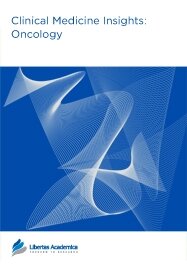

Publication Date: 03 Jun 2013
Type: Review
Journal: Clinical Medicine Insights: Oncology
Citation: Clinical Medicine Insights: Oncology 2013:7 103-122
doi: 10.4137/CMO.S10358

Gain-of-function mutations in oncogenes and loss-of-function mutations in tumor suppressor genes (TSG) lead to cancer. In most human cancers, these mutations occur in somatic tissues. However, hereditary forms of cancer exist for which individuals are heterozygous for a germline mutation in a TSG locus at birth. The second allele is frequently inactivated by gene deletion, point mutation, or promoter methylation in classical TSGs that meet Knudson’s two-hit hypothesis. Conversely, the second allele remains as wild-type, even in tumors in which the gene is haplo-insufficient for tumor suppression. This article highlights the importance of PTEN, APC, and other tumor suppressors for counteracting aberrant PI3K, β-catenin, and other oncogenic signaling pathways. We discuss the use of gene-engineered mouse models (GEMM) of human cancer focusing on Pten and Apc knockout mice that recapitulate key genetic events involved in initiation and progression of human neoplasia. Finally, the therapeutic potential of targeting these tumor suppressor and oncogene signaling networks is discussed.
PDF (1.03 MB PDF FORMAT)
RIS citation (ENDNOTE, REFERENCE MANAGER, PROCITE, REFWORKS)
BibTex citation (BIBDESK, LATEX)
XML
PMC HTML

Publishing in “Clinical Medicine Insights: Oncology” was one of my best experience so far in an academic context. I found the process of going through submission, review, editing, and publication to be quite easy and most importantly, fair and efficient. I congratulate the team at Libertas Academica for a very well managed journal.
Facebook Google+ Twitter
Pinterest Tumblr YouTube